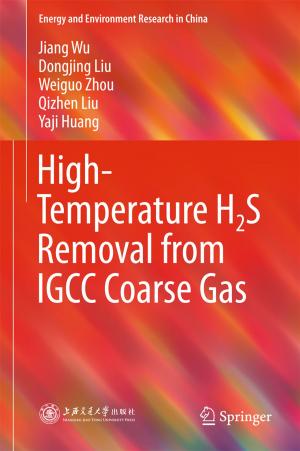Monotonic, Cyclic and Postcyclic Shear Behavior of Low-plasticity Silt
Nonfiction, Science & Nature, Science, Other Sciences, Meteorology, Earth Sciences| Author: | Shuying Wang | ISBN: | 9789811070839 |
| Publisher: | Springer Singapore | Publication: | January 24, 2018 |
| Imprint: | Springer | Language: | English |
| Author: | Shuying Wang |
| ISBN: | 9789811070839 |
| Publisher: | Springer Singapore |
| Publication: | January 24, 2018 |
| Imprint: | Springer |
| Language: | English |
This book gathers the main research findings on monotonic, cyclic and postcyclic shear behavior of low-plasticity. Drawing on the low-plasticity silt from the Mississippi River Valley, it determines that the silt’s critical state line can be changed due to liquefaction, and thus offers valuable insights and reference data for further investigations on soil mechanics and engineering applications to verify the above research findings.
Low-plasticity silt with a plasticity index of less than 10, though commonly found around the world, nonetheless differs greatly from sand and clay in terms of its shear behavior. Failure to take into account the differences in shear characteristics between silt, clay and sand will lead to overconservative designs of offshore structures. In particular, dynamic loading from earthquakes, trains and ocean waves can set off the liquefaction of low-plasticity silt, and with it, major disasters and losses of properties. Additionally, some civil infrastructures have failed not only due to cyclic loading during an earthquake, but also due to reduction of shear strength or stiffness after that.
This book gathers the main research findings on monotonic, cyclic and postcyclic shear behavior of low-plasticity. Drawing on the low-plasticity silt from the Mississippi River Valley, it determines that the silt’s critical state line can be changed due to liquefaction, and thus offers valuable insights and reference data for further investigations on soil mechanics and engineering applications to verify the above research findings.
Low-plasticity silt with a plasticity index of less than 10, though commonly found around the world, nonetheless differs greatly from sand and clay in terms of its shear behavior. Failure to take into account the differences in shear characteristics between silt, clay and sand will lead to overconservative designs of offshore structures. In particular, dynamic loading from earthquakes, trains and ocean waves can set off the liquefaction of low-plasticity silt, and with it, major disasters and losses of properties. Additionally, some civil infrastructures have failed not only due to cyclic loading during an earthquake, but also due to reduction of shear strength or stiffness after that.















